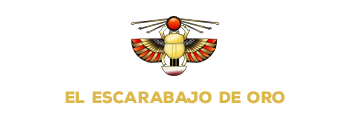AZTLAN CULTURAL CENTER
of Psychology, Philosophy, and Humanities.
Dir.: León Azulay
Civil Association I.G.J. No. 748

Our Way of Being Attracts Our Life
It is said in the Fourth Way that we do not know ourselves well enough. The concept that our Being attracts our life and that we believe we know ourselves—they go hand in hand. In essence, it means that we imagine knowing our Being. But we do not. If we knew ourselves well enough, self-observation would not be necessary.
We do not know our Being, and thus, we do not know why we attract the situations and events of our lives. If we had sufficient self-knowledge, we could see that we need that kind of life or that we could make it different. However, only the Work on oneself, real self-awareness, as proposed by holistic philosophy or Gurdjieff's Fourth Way, can change our Being.
Maurice Nicoll (a disciple of Ouspensky) says, "Apparently, this often happens because people ask me about what they should work on. The answer may be that they cannot observe themselves and thus remain 'blind.'
Many years before I knew about this Work (Fourth Way), I was a disciple of Jung in Zurich. One of the useful things he taught us is that we all have a psychological shadow, and the beginning of the path to internal evolution lies in gradually making that shadow conscious. The shadow is that part of ourselves of which we are not aware, although we should be—painful for our pride as well as for our vanity—becoming eventually conscious, which is conscious suffering. It is facing our own shadow if we are serious. Of course, it profoundly modifies our idea of ourselves. That shadow, which is in everyone, can cause catastrophe in our lives as long as we remain unaware of it. As part of our Being that we do not recognize, it attracts many things that seem incomprehensible in our life because we do not accept them. Someone who has recognized the personal and collective shadow is a more conscious being."
















